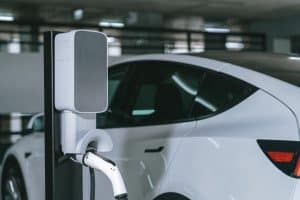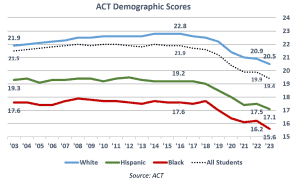Kansas Governor Laura Kelly’s office has declined to answer questions about a very expensive series of EV charging stations in the state recently touted by her office.
Kelly’s office on January 3, 2024, announced that as part of a federal infrastructure grant. approximately $4.6 million would be used to build the first six National Electric Vehicle Infrastructure Formula stations.
The stations will be built at a Flying J. in Emporia, a Love’s in Garden City and Belleville, Pete’s stations in Cherokee and Fredonia, and a Casey’s in Pratt.
According to the release, “The awarded projects must provide a minimum 20% local cash match, bringing the total investment to over $5.8 million.” That’s almost $1 million for a single charging station with four bays.
The cost of installing a level 3 station at home (most home stations are the slower level 2 types which are used overnight) ranges from around $15,000 to $50,000. Still a hefty price tag, but far lower than the approximate $250,000 per bay cost for the state program.
However, there were a few things that were unclear from the release, and the Sentinel reached out to Kelly Spokeswoman Grace Hoge asking what — if any — incentives were provided to the owners of the locations where the fast charging stations were to be built. What economic benefit would there be to the station owners, and what charges, if any, would users pay to cover the electricity cost? Hoge was also asked how fast the stations would charge a vehicle and what the cost would be compared to filling a gas tank, as well as how the stations would be powered.
As of publication, Hoge has not responded.
Less than 1% of Kansas vehicles are electric
“As more electric cars and trucks make their way onto Kansas roadways, they will need access to adequate charging facilities,” Governor Laura Kelly said. “With these awards, we’ll ensure electric vehicle charging stations are accessible to all Kansans for local and long-distance trips.”
However, the data suggest that simply isn’t the case.
 Explodingtopics.com cites data from the Alternative Fuels Data Center showing that while there are a bit over 2.4 million electric vehicles registered in the US, more than a third — 36% — are registered in California. Moreover, there are only 7,550 registered in Kansas as of the start of 2024 — roughly 0.29% — out of a total of 2.4 million vehicles of all types. Missouri has just under 18,000 registered, but still only one-third of one percent of vehicles. The numbers in Oklahoma are roughly similar. Colorado has just under 60,000 registered or about 1.11% of vehicles. Those three states all have large urban areas where electric vehicles are more common and more useful. However, Nebraska, which is more like Kansas in the lack of large metro areas, is more comparable, with just 4,570 or 0.24% registered.
Explodingtopics.com cites data from the Alternative Fuels Data Center showing that while there are a bit over 2.4 million electric vehicles registered in the US, more than a third — 36% — are registered in California. Moreover, there are only 7,550 registered in Kansas as of the start of 2024 — roughly 0.29% — out of a total of 2.4 million vehicles of all types. Missouri has just under 18,000 registered, but still only one-third of one percent of vehicles. The numbers in Oklahoma are roughly similar. Colorado has just under 60,000 registered or about 1.11% of vehicles. Those three states all have large urban areas where electric vehicles are more common and more useful. However, Nebraska, which is more like Kansas in the lack of large metro areas, is more comparable, with just 4,570 or 0.24% registered.
Road and Track magazine recently reported that a large, peer-reviewed study by George Washington University found that EV drivers travel, on average, some 4,500 fewer miles a year than owners of gasoline-powered cars or hybrids.
“While the study doesn’t draw any specific conclusions as to why there is such a disparity between driver behavior, there are plenty of factors to speculate about,” R&T noted. “The researchers themselves noted that many EV owners also own a traditional combustion car, which might eat into the mileage totals amid longer, less convenient journeys. Furthermore, it is possible that concerns about range anxiety prevent owners from pushing their EVs to the end of their battery packs, especially in areas without a robust charging network.”
Indeed, with the exception of Tesla (which has its own charging network), EV owners are more likely to take a conventionally fueled car on long trips. Even where charging stations are available, there can be considerable downtime waiting for the battery to charge.




